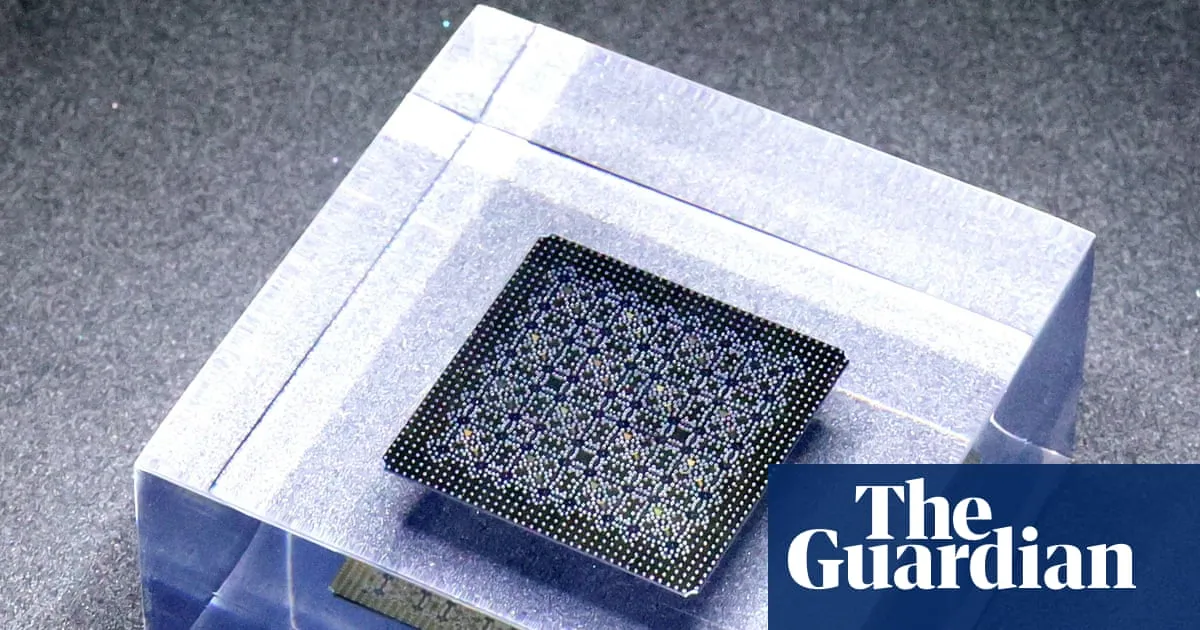
Google has announced a significant breakthrough in the field of quantum computing by developing a groundbreaking algorithm that successfully performed a computational task beyond the reach of traditional computers. This algorithm, a series of instructions designed specifically for quantum computers, enabled researchers to compute the structure of a molecule. This advancement opens new avenues for major discoveries in critical fields such as medicine and materials science.
Despite this impressive achievement, Google cautioned that the practical applications of quantum computers in real-world scenarios are still several years away. In a recent blog post, the company stated, “This is the first time in history that any quantum computer has successfully run a verifiable algorithm that surpasses the ability of supercomputers.” The company emphasized that this repeatable, beyond-classical computation lays the groundwork for scalable verification, moving quantum computers closer to becoming practical tools for various applications.
Michel Devoret, the chief scientist at Google’s quantum AI unit and a recent Nobel Prize winner in physics, called this announcement a pivotal moment in the evolution of quantum computing. “This marks a new step towards full-scale quantum computation,” he remarked. The breakthrough algorithm enabled a quantum computer to operate an astonishing 13,000 times faster than classical computers, with detailed findings published in a peer-reviewed paper in the journal Nature.
While this achievement has garnered significant attention, one expert cautioned that Google's success focuses on a narrow scientific problem and does not have immediate implications for the real world. The findings for two molecules were cross-verified using nuclear magnetic resonance (NMR)—the same technology that powers MRI scans—revealing information that traditional NMR cannot uncover.
Winfried Hensinger, a professor of quantum technologies at the University of Sussex, noted that Google has demonstrated a concept known as quantum advantage. This term indicates that the researchers have successfully completed a computational task utilizing a quantum computer, which is impossible to replicate with classical computing methods. However, the reality remains that fully fault-tolerant quantum computers, capable of tackling the most exciting tasks within the scientific community, are still a long way off. Such machines would require the ability to host hundreds of thousands of quantum bits (qubits), the fundamental units of information in quantum computing.
“It’s important to understand that the task Google has achieved is not quite as revolutionary as some of the groundbreaking applications anticipated for quantum computers,” Hensinger added. “However, it is yet another convincing proof that quantum computers are gradually becoming more powerful.”
Truly powerful quantum computers that can address a wide range of challenges will require millions of qubits, a feat that current quantum hardware struggles to achieve due to the inherent volatility of qubits. “Some of the most interesting quantum computers being discussed will require millions or even billions of qubits,” Hensinger explained. “This is more difficult to achieve with the type of hardware used by the authors of the Google paper, as their hardware needs to be cooled to extremely low temperatures.”
Hartmut Neven, Google's vice president of engineering, expressed optimism about the future of quantum computing, stating that real-world applications could emerge within five years, despite the current breakthrough with the algorithm, dubbed quantum echoes. “With quantum echoes, we continue to be optimistic that within five years we’ll see real-world applications that are possible only on quantum computers,” he said.
As a leader in artificial intelligence, Google posits that quantum computers will have the potential to generate unique datasets that can be integrated into AI models, thus enhancing their power and capabilities. Unlike classical computers, which encode information as bits (0s and 1s) transmitted through electrical pulses, quantum computers utilize qubits. These qubits, found within a compact chip, are particles like electrons or photons that can exist in multiple states simultaneously, a property known as superposition.
This characteristic allows qubits to encode various combinations of 1s and 0s at the same time, enabling quantum computers to explore vast numbers of potential outcomes—something classical computers cannot achieve. However, maintaining the integrity of qubits requires a highly controlled environment, free from electromagnetic interference, as they can be easily disrupted.
The advancements made by companies like Google have prompted concerns among cybersecurity experts regarding the potential for quantum computers to breach high-level encryption standards. This has led to increased calls for governments and organizations to adopt quantum-proof cryptography to safeguard sensitive information against future quantum threats.